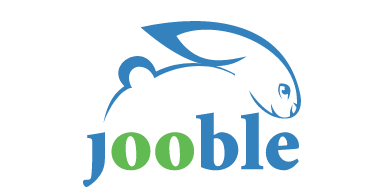Creating a Winning Resume for a Career Shift
Showcasing Your Potential in a New Field
Transitioning to a new career often means convincing potential employers that your previous experience and skills are not only relevant but also valuable in a different context. A well-crafted resume is crucial in this process. This article guides you through creating a resume that effectively highlights your transferable skills and experiences, positioning you as a strong candidate for your new career path.
1. Start with a Strong Summary
Your resume should begin with a professional summary or objective that clearly states your career transition goals. This section should succinctly explain why you are shifting careers and how your past experiences make you a suitable candidate for your new field.
2. Highlight Transferable Skills
Identify the skills from your previous jobs that are relevant to your new career. These might include soft skills like communication, problem-solving, and teamwork, as well as any technical skills that are transferable. Make these skills prominent in your resume.
3. Use a Functional Resume Format
Unlike the traditional chronological resume, a functional resume focuses on skills and experiences rather than a timeline of past jobs. This format allows you to tailor your resume to the new industry by emphasizing relevant skills and accomplishments.
4. Detail Relevant Experiences
Even if your previous jobs are in a different field, they likely contain relevant experiences. Highlight projects, tasks, and roles that have a direct or indirect connection to the new career. Use specific examples and quantify achievements when possible.
5. Include Any Relevant Education or Training
If you've completed any courses, certifications, or degrees relevant to your new career, make sure they are prominently featured on your resume. This shows your commitment to transitioning into the new field.
6. Customize for Each Application
Tailor your resume for each job application. Use the job description to identify the most important skills and experiences for the role, and make sure these are reflected in your resume.
7. Proofread and Get Feedback
Ensure your resume is free from errors and easy to read. It’s also helpful to get feedback from professionals in your target industry or a career coach.
A well-crafted resume is a key tool in your career transition arsenal. By effectively showcasing your transferable skills and relevant experiences, you can demonstrate to potential employers that your background is not just applicable, but a valuable asset to your new field. Remember, your resume is your personal marketing document – make it reflect your strengths and potential.
 | CV / Resume Advice to Get That Interview Advice on how to structure your CV to give you the best chance of landing an interview. |
 | How to Write an Application Cover Letter Tips on how best to approach a potential employer with your job application or resume. |
 | Handling CV Problem Areas Advice on how to handle problem areas on your CV: gaps, firings, criminal record, etc. |
 | Putting Your CV Online Placing your CV online allows employers and recruiters to headhunt you. |
 | What to Include in Your CV Tips on what information you should and should not include in your CV. |
 | What are the Easiest Jobs to get with no Experience? According to the office of National Statistics, the in the United Kingdom stood at 75.6 % from October to December 2022. This means that the rest of the population is either unemployed, unwilling to work, or retired. If you are entering the job ... |
 | The Benefits of Volunteering and How It Can Enhance Your Job Search When you're actively seeking employment, you may find yourself with extra free time in between job interviews and applications. Instead of letting that time go to waste, consider the potential benefits of volunteering. Volunteering involves work... |
 | Key Factors Employers Seek in Resumes Understanding what employers look for in a resume is crucial for ensuring that your document meets their expectations and desires. Here are some essential aspects that employers pay attention to: |
 | What Employers Seek in Job Skills Job skills are the abilities, knowledge, and expertise required to effectively perform a job. They encompass competencies, talents, and capabilities that enable individuals to fulfill their duties and achieve their goals successfully. When seeki... |
 | 12 Qualities Employers Seek in Job Candidates When it comes to the hiring process, job ads often give the impression that employers are solely focused on specific types of experience. They emphasize long lists of bullet points outlining essential requirements such as years of experience wit... |
 | Strategies for Landing High-Paying Jobs and Boosting Your Paycheck Who doesn't want a bigger paycheck? It's natural to desire a job that offers substantial earning potential. In fact, according to a survey by the Society for Human Resource Management, 63% of workers consider compensation to be crucial for their... |
 | Unleashing the Power of Resume Words: Extracting Insights from Job Ads When it comes to searching for the perfect job, sometimes the key to success is right in front of us. Job ads themselves hold valuable clues about the resume words that can make a candidate stand out from the competition. Understanding how to in... |
